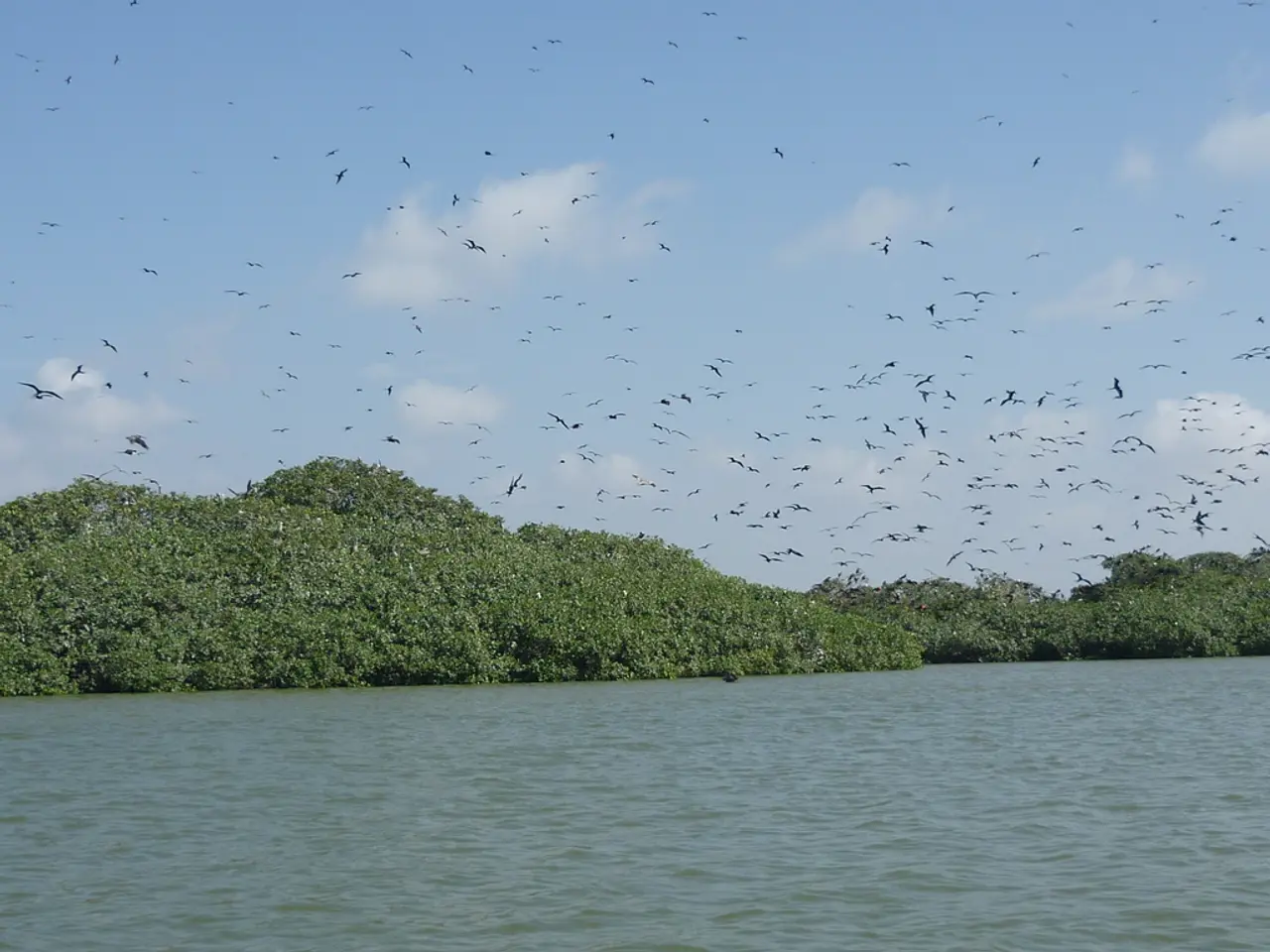Enhancing its migration control measures, Athens plans to strengthen its immigration policy. - Greece intends to strengthen its immigration regulations
In a significant move, the Greek government has announced a three-month suspension of asylum applications for migrants arriving by sea from North Africa, primarily from Libya. This decision aims to address the recent surge in Mediterranean crossings that have put a strain on reception facilities, particularly on the island of Crete.
The suspension of asylum applications applies to all migrants entering Greece illegally by sea from North Africa, effectively halting their access to asylum claims for an initial period of three months. This measure is part of a broader policy aimed at toughening the country's immigration policy.
Migrants entering Greece without a visa or proper documentation may now face criminal charges, as an upcoming bill aims to criminalize undocumented entry into the country. The government also plans to detain migrants entering illegally, with new detention centers proposed, including one on Crete.
To further curb illegal entries, the Greek government is coordinating with the Libyan coastguard to intercept and turn back boats before they reach Greek territory. However, this policy and the proposed bill have drawn criticism from international human rights organizations and the UN, who express concerns that such measures violate international law and the 1951 Refugee Convention, which prohibits penalizing refugees for illegal entry.
Prior to this policy, individuals without residence permits in Greece were not imprisoned but were sent to a camp for later deportation, with the possibility of temporary release. The proposed policy will introduce imprisonment as a penalty for individuals who remain illegally in the country and refuse to leave voluntarily.
The Greek government's conservative administration views this measure as a significant step towards balancing human rights protection with law and order, social cohesion, and national security. The proposed bill is set to be presented to the Athens parliament for consideration.
This emergency stance comes amidst strong international condemnation for breaching refugee protections. It remains to be seen how this policy will unfold and whether it will lead to a reduction in migrant arrivals or further complications in the ongoing refugee crisis.
The three-month suspension of asylum applications is part of Greece's employment policy, aiming to address the surge in Mediterranean migration and reduce illegal entries. This policy, however, has drawn criticism from international organizations for potentially violating the 1951 Refugee Convention.
The upcoming bill in Greece's political agenda plans to criminalize undocumented entry and introduce imprisonment as a penalty for individuals who remain illegally in the country, which is a controversial change from previous residence permit policies.








